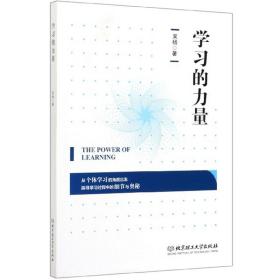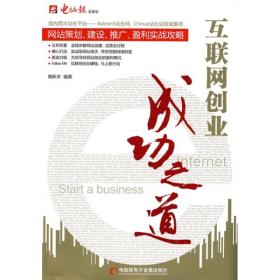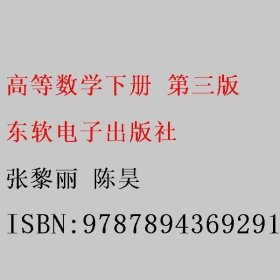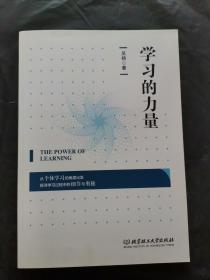
学习的力量(英文版)
库存新书 成套书籍请联系客服下单
¥ 22.95 3.0折 ¥ 76.5 全新
仅1件
北京朝阳
认证卖家担保交易快速发货售后保障
作者吴杨 著
出版社北京理工大学出版社
出版时间2020-04
版次1
装帧平装
上书时间2024-11-22
- 最新上架
商品详情
- 品相描述:全新
- 商品描述
- 正版书,,从未翻阅, 年限久的自然的旧,每天下午发货
图书标准信息
- 作者 吴杨 著
- 出版社 北京理工大学出版社
- 出版时间 2020-04
- 版次 1
- ISBN 9787568283427
- 定价 76.50元
- 装帧 平装
- 开本 16开
- 纸张 胶版纸
- 页数 259页
- 【内容简介】
- 《学习的力量(英文版)》是一本关于学习方面的英文专著,作者从个体学习的角度出发,探寻学习过程中的细节与奥秘。《学习的力量(英文版)》共分为九章,分别从生命力量的源泉、教育体系的共识、个体生活的态度、自我认知的实现、知识获取的途径、知识系统的跃迁、组织发展的契机、智能时代的进化、终生目标与信仰来对“学习”进行论述和解读。通过这九个章节,读者可以对“学习”有更进一步了解,从而学会学习,促进终身学习意识的培养。《学习的力量(英文版)》内容难度适中,尤其适合大学生的课外阅读。
- 【目录】
-
Chapter 1 Learning: The Source of Life
1.1 Self-value of the learner
1.1.1 To know what is learning
1.1.2 The purpose of learning
1.1.3 The process of learning
1.1.4 The subjectivity of learning
1.2 Learning strategies
1.2.1 The classification of learning methods
1.2.2 The choice of learning methods
1.3 Learning environment
1.3.1 The intrinsic element of learning
1.3.2 The external atmosphere of learning
1.4 Direction and motivation of learning
1.4.1 The overview of learning motivation
1.4.2 The classification of learning motivation
1.4.3 The theoretical basis of learning motivation
1.4.4 The cultivation and stimulation of learning motivation
1.4.5 The relationship between learning motivation and learning
Chapter 2 Learning: Consensus on Education System
2.1 The influence of education system on learning
2.1.1 The purpose of education restricts the way of learning
2.1.2 Education trains people through learning
2.1.3 Education system provides guarantee for learning
2.2 The mission of education is active learning and to putit into action
2.2.1 Active learning
2.2.2 Take actions
2.3 The direction of educaion is ifelong learming
2.3.1 Learming is to master knowledge better
2.3.2 Leaming is for the beter promotion of intelligence
2.3.3 Learming is to enhance their competitiveness
2.4 The future of etucation is learming to learn
2.4.1 The law of learming
2.4.2 Learning methods
Chapter 3 Learning: The Attitude of Individual Life
3.1 Learming process in different fields
3.1.1 Knowledge learning
3.1.2 The study of motor skils
3.1.3 Learning strategies
3.2 Individual learning ability
3.2.1 Overview of capabilities
3.2.2 Factors influencing the formation and development of learning ability
3.2.3 The cultivation of individual leaning ability
3.3 Action learning
3.3.1 Action learning
3.3.2 Application of action learning
Chapter 4 Learning: The Realization of Self-cognition
4.1 Cognition and thinking
4.1.1 Cognition and self-cognition
4.1.2 Cognitive structure and connection keys
4.1.3 Thinking mode
4.2 Cognitive psychology and learning theory
4.2.1 Cognitive psychology
4.2.2 Learning theory
4.3 Exploiting the value of old knowledge: gain new knowledge by reviewing old
4.3.1 Review and review method
4.3.2 Review effect and path
4.4 Alternate learning and concentration
4.4.1 Altemate learning and multitasking
4.4.2 Attention
4.5 Intentional training and time management
4.5.1 Intentional training and the 10000-hour law
4.5.2 Behavioral characteristics of deliberate training
4.5.3 Time management
Chapter 5 Learing: Ways to Acquire Knowledge
5.1 Selection of knowledge accumulation targets
5.1.1 Diferences in target types of knowledge accumulation
5.1.2 Reasons for differences in target selection
5.1.3 Relationship between selection of knowledge accumulation targets and knowledge acquisition
5.2 Advanced process of knowledge acquisition
5.2.1 Knowledge transfer
5.2.2 Knowledge transformation
5.2.3 Knowledge sharing
5.2.4 Analysis of internal relations among knowledge transform ation, knowledge transfer and knowledge sharing
5.3 Duplication and knowledge precipitation
5.4 Action learning theory
Chapter 6 Learning: Transition of Knowledge System
6.1 Insight and leap of the knowledge
6.1.1 What is epiphany
6.1.2 Relationship between knowledge and experience and epiphany
6.1.3 Obstacles and activation of knowledge and experience
6.2 Self-management of knowledge system
6.2.1 Conceptual expression of knowledge system
6.2.2 Personal knowledge system management
6.3 Rationalization trend of knowledge structure
Chapter 7 Learning: Opportunities for Organizational Development
7.1 Organizational learning
7.1.1 Organizational learning and group learning
7.1.2 Organizational learning and individual learning
7.1.3 Organizational learning process and features
7.1.4 Organizational learning ability
7.1.5 Organizational learming mechanism-education and training
7.2 Learning organization
7.2.1 Relationship between leaming organization and organizational learning
7.2.2 Learning organizations and their theories
7.2.3 The “Penta Cultivation”theoretical model
7.3 Organizational leaming strategies: knowledge management
7.3.1 Knowledge management mode
7.3.2 Head of knowledge management-CKO
7.3.3 Team knowledge management
Chapter 8 Learning: The Evolution of the Intelligent Age
8.1 Opportunities and challenges for learning in the intelligent age
8.1.1 Opportunities for learning change in the intelligent age
8.1.2 Challenges of learning change in the intelligent age
8.2 Fragmented time and intelligent learning
8.2.1 Use fragmentation time smartly
8.2.2 Time management and self-restraint
8.2.3 Make good use of learning methods to achieve breakthroughs
8.3 Innovative thinking leads the situation
8.3.1 How important is innovative thinking
8.3.2 Trial and error, let innovation come from nothing
8.3.3 Innovation today
8.4 Chapter summary
Chapter 9 Learning: Lifetime Goals and Beliefs
9.1 Teamwork learning
9.1.1 Teamwork
9.1.2 Communication management
9.1.3 Establish a learning ecosystem
9.2 Lifelong learning and the development of learning habits
9.2.1 Lifelong learning from young to old
9.2.2 How to establish the concept of lifelong leaning
9.3 Learning: faith and the future
9.3.1 Learning is a belief
9.3.2 Learning is not a lonely journey
9.3.3 Learning makes today\'s vision a reality for tomorow
9.4 Summary
References
Postscript
点击展开
点击收起
相关推荐
— 没有更多了 —

















以下为对购买帮助不大的评价